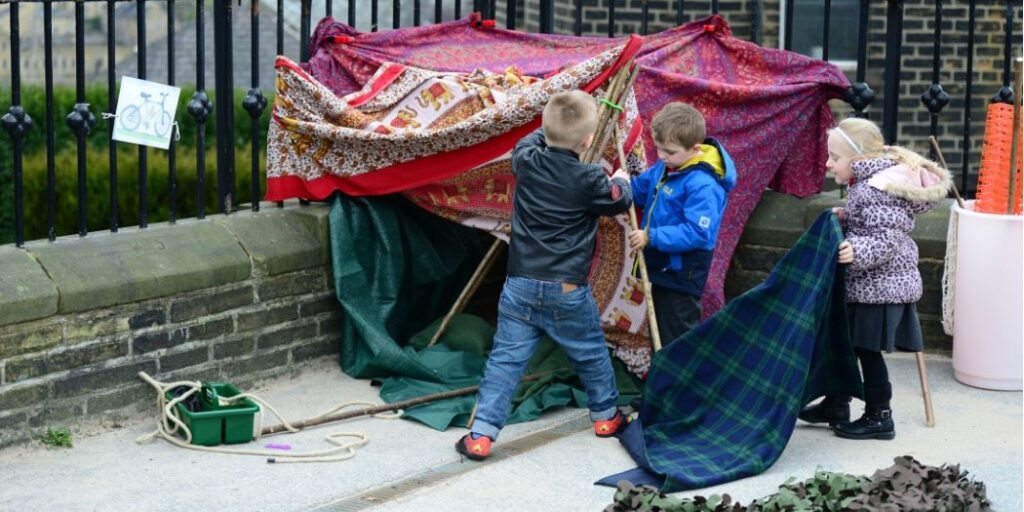As we try to get to grips with this new, isolated way of life, education for our youngest children has also changed dramatically. EYFS teachers have been working incredibly hard to fulfil their teaching role whilst staying safe and staying at home.
What teachers are trying to do is completely understandable: aiming to maintain a sense of normality for our children through this difficult period and to continue to play our role as teachers. We do need to be careful here though. Expecting teachers, children and families to carry on regardless isn’t necessarily the most effective approach at such a challenging time.
Young children (and adults) will need time to process the changes in routine, stress and anxiety that the lockdown brings. What young children need now, possibly more than ever before, is the opportunity to engage in playful ideas and explorations that interest and fascinate them.
Let’s look at one example of this – den making. Young children have always had an in – built desire to create their own cosy spaces that they can crawl into. This doesn’t have to be outdoors of course; children have always been very creative with the den making process- from repurposing a tablecloth and chairs to crawling into the space behind the sofa. Creating spaces like this gives children a sense of control over their surroundings and also provides them with a space in which to feel secure and safe.
This den making often leads to rich opportunities for learning. There tends to be a high degree of problem solving here as children create and adapt the space around them. Children’s dens will often become the starting point for rich imaginative play with role play or small world play naturally emerging.
Den making is, of course, just one example of a predictable interest that can lead to rich learning experiences. Children will also be naturally interested in a wide range of things from small world to sensory or creative play experiences. We can’t assume that parents will always see the link between these experiences and the rich learning that they provide.
Whilst modern technology enables us to link up with each other in extremely creative ways, I think we need to be careful that the role of the teacher in this context doesn’t simply become someone who updates websites with useful links and suggests activities. As teachers link up with their children and their parents online, it’s crucial that we value children’s self-chosen, playful experiences as well as those that are directed by adults. Effective early years teaching has never been just what happens at carpet time or on the group table, but our online suggestions might sometimes give this impression.
So, before we get too caught up in the hard to sustain process of setting activities to do at home, let’s share some key principles instead. A lockdown situation gives us time, let’s use it effectively.
- Recommend that parents give children lots of time to choose what they would like to do. Children will be far more imaginative and inventive if they are given time to explore their own ideas.
- Highlight the importance of giving time for children to return to ideas and concepts. Returning to learning provides children with the opportunity to make changes and embed ideas.
- Value the time for children to talk about their own ideas. Talking through their ideas will give opportunities for extending vocabulary and making links with other experiences.
Despite the current situation, the revised EYFS will still become statutory in September. So whether you are a Head, Senior Leader or classroom practitioner, our webinar programme offers the perfect solution to support your understanding of the upcoming changes.
You can engage with us @earlyexcellence on our social media channels and don’t forget to visit our website regularly to find forums, workshops and twilight training courses to inspire you – as well as our Early Years Resources Shop.

